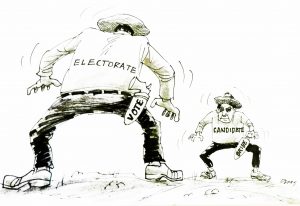As the nationwide Barangay and SK elections draw near, the integrity of the electoral system is being challenged as candidates seemingly cannot do away with vote-buying activities. While the intent to win over voters is inherent in any democratic process, this unethical practice undermines the essence of fair elections. What are the reasons behind these phenomena and the complex web of motivations that drive candidates to engage in such practices?
One of the primary factors contributing to the prevalence of vote-buying among candidates is the non-transparent campaign financing system. Political campaigns demand substantial funding, especially in competitive races, leading many candidates to use illicit means to secure the necessary resources. With the pressure to raise significant amounts of money in a limited time, some candidates turn to vote-buying as a quick-fix solution to win over undecided voters. This monetary exchange, however, undermines the integrity of the electoral process and erodes trust among citizens.
Furthermore, the perception that vote-buying yields electoral success can contribute to its perpetuation. Candidates who witness their opponents gaining electoral support through these unscrupulous practices might be tempted to follow suit to level the playing field. This unhealthy competition often leads to a downward spiral, normalizing vote-buying and diminishing the importance of genuine policy discussion and debate. The pursuit of political power becomes primarily based on financial strength, diverting attention from the real issues that should guide voters’ decision-making.
Another significant factor behind the persistence of vote-buying practices relates to the socio-economic conditions prevalent in many communities. In regions plagued by poverty and limited access to basic social services, the allure of receiving immediate benefits in exchange for a vote is hard to resist for economically vulnerable citizens. Candidates capitalize on these circumstances by exploiting the vulnerabilities of voters, perpetuating a cycle of dependency that hampers social and economic development. These systemic challenges demand comprehensive efforts to tackle the root causes of vote-buying and uplift disadvantaged communities.
Unfortunately, vote-buying among candidates prior to elections seriously threatens the democratic process. To restore the integrity of elections, robust legislation, strong enforcement mechanisms, and continued civic education campaigns are paramount. Addressing underlying socio-economic disparities and ensuring equitable access to basic necessities are crucial in curbing the prevalence of vote-buying. Only through collective action can societies foster truly fair and representative electoral processes.




